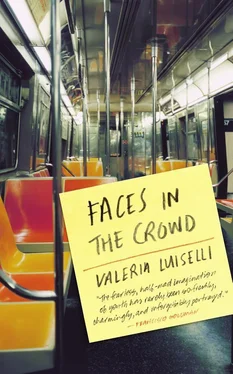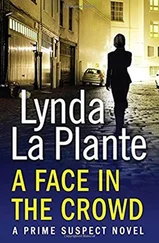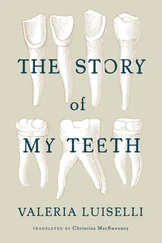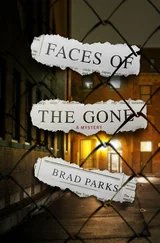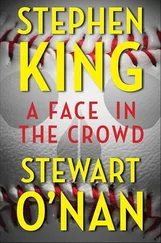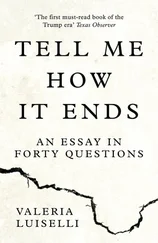I left the consulate in a self-literizing mood and walked through the backstreets of the south of the city, a bit like that Edgar Allan Poe character who chases after crowds without any clear purpose. Turning a corner, I saw a woman. She was one of those Scandinavians who would never join the United Estates upper classes, but who justify all the gobs of oil spat into the sea by transatlantic liners, all the tons of cement poured onto the island of the poor Manhattoes, all the greasy hamburgers, all the toilets, the cockroaches, the truncated vocabulary of newcomers who ask for a sunny-side-up for breakfast. I think that was the third time I died.
It must have happened as I was crossing the avenue toward the corner where she was standing. Most probably one of those demented cab drivers ran me over. Afterwards I continued across and stopped by a streetlamp to get a closer look. She took ten steps in one direction, turned, and took ten steps in the other. Heel toe, heel toe. Always ten. She had bony feet, the color of cream, balancing on dark sandals with two straps that wound around her slim ankles and ended in a bow halfway up her calves. A single one of those legs was worth more than all the others in the city, or in the world. If the poor lame woman who was heading for an early divorce had had at least one of those legs, her young husband wouldn’t have felt that he’d been hoodwinked and asked for the divorce. I went up to her and put a hand on her shoulder. She turned, I didn’t know what to say — though later I lied to Villaurrutia in a letter: “She’s Swedish and I’m not in love with her, but I had her as a virgin.”
The truth is that Iselin was neither a virgin nor Swedish. She was, to put it delicately, a very hardworking Norwegian woman. But I went down like a rock. I fell in love with her the way a stone might become enamored of a bird. That afternoon she took my hand, led me to a room in a Bowery Hotel, and had me as a virgin. I stopped being, as they used to say then, a poor cherry, and felt, all 1.45 meters of me, a true macho.
*
My husband doesn’t read anything I write anymore, it no longer matters to him, it no longer matters. I don’t think he cares the least bit about Owen, this Owen, who is perhaps his future ghost in Philadelphia, his future life.
*
My ex-wife wants to take the children to Europe. She thinks that part of the basic education of a good criollo is rubbing shoulders with people who are fairer and better dressed. What she doesn’t know, what doesn’t even occur to the Great Bitch, is that the only thing she’s going to achieve with this trip is to sow a little seed of self-loathing in my children. Aware that she would feel some sort of guilt at squandering her family fortune on dresses for cocktail parties that would always end up with her spreading her legs for some dilettante given to murmuring verses by Mallarmé to wealthy Latin American women, I asked her to lend me the Manhattan apartment while she was away. I don’t think that’s a good idea, Gilberto, she said, with that petulant look of a person who believes it to be her obligation to educate her ex-husband.
*
Note: Owen’s grave in Philadelphia has no epitaph. His family wants to transfer his remains to El Rosario.
*
It’s the weekends that I find hardest without the children. On workdays I make a coffee at six in the morning, I drink it in the bath, get dressed with the patience and resignation of a father dressing his son, every button a ritual, tying the tie, the pause and a half of knotting the shoelaces. I leave something for the cats, which I imagine the ghosts must eat because a living being would never consume a bar of soap or a pint of cologne. I go to the office, leave, get moderately drunk, alone or with some colleague, and return to the twilight of my apartment full of things the ghosts keep bringing. Today, for example, a bicycle appeared in the kitchen and a tower of books on the windowsill. The same thing every day. Some nights I don’t manage to take off my suit and sleep clutching a pillow until it’s six again, my alarm clock goes off, and the Fucking Yanks arrive to lick my eyes.
But on Saturdays I don’t have the pretext of the tie or the mentholated hope of the shaving cream. I also believe that this is the day when the ghosts go out for walks, because there isn’t a sound to be heard and the house feels emptier than usual. I go out too, to buy the papers, which of course I can no longer read properly. But I hoard them in towers, like the Collyer brothers, and soon I’m going to make a rampart, splitting the apartment in two: I’ve already got three towers in the kitchen, almost my own height. Before returning home, I buy a coffee on the corner and continue on my way, taking short little slow steps, spinning out as far as possible my return to that world without laughter or quarrels or children crying, longing for at least the ghosts to have come back from their walks. When I arrive, I lie in my Reposet chair and set about stroking the three cats, who jump into my lap as if they were the ones who needed consolation.
*
I returned to the same corner in search of Iselin. She wasn’t there. I went back two, three, four times. Her fellow workers weren’t keen on giving me a telephone number, an address: Don’t get fond of her, kid. At the fifth attempt I found her on her corner. I took her out for dinner in the Bowery. Afterwards, she took me to a hotel. What choice was there?
*
I’m getting attached to the three cats. What’s more, they’ve turned out to have a useful, very supportive side. I no longer put either cologne or soap out for them, just leave my leftovers on the table and they come along to lick the plates. They lick them so well, so thoroughly, that I don’t have to wash up anymore. I’ve taken to stroking them all the time. I like passing my hand from the top of their heads to the tip of their tails.
*
The boy comes into my bedroom, where I’m writing:
Look, Mama, this is our house.
That’s pretty.
No, it’s not very pretty. A really strong dinosaur came along and the house fell down.
And who’s this?
You, you stayed under the roof that fell down.
And this?
It’s just a heart that I was painting here.
*
Note (Gilberto Owen to Celestino Gorostiza, September 18, 1928): “The landscape and all my aspirations are vertical now. These men of the North, mystical, with not the least trace of eye-to-pore sensuality, are just poor musicians. We move around awake, in wide, real space. They in time. New York is a theory of a city built on the foundation of time alone. Manhattan is an hour, or a century, with the woodworm of the subways boring through it, eating it away, second by second.”
*
One day I asked Z if he had ever seen Ezra Pound.
No, he said, but I sent him some poems a few years ago and he published them.
And what would you say if I told you I saw him a few days ago in a subway station?
Well, that he surely will have seen you too.
I suppose the brown-skinned woman used to see me too. Perhaps she even saw me when I didn’t manage to see her: when I was absorbed in a book, or fell asleep until my stop on 116th Street. Maybe she also looked for me in the multitude of subwankers and only felt that her idiotic day had been worth the effort after seeing me, even if it was just a flash.
*
Iselin did it like a man. She was a lot taller and stronger than me. When we went into a hotel room she would throw me onto the bed with amazing force, order me to undress, and overrun my naked body with more aplomb than revolutionary troops in a city that has already surrendered — having a naturally small build, I’d learned to be submissive early in life. When she was on top of me, bursting with preorgasmic juices, her face had a slight but disturbing resemblance to the Mexican president Alvaro Obregón, who had died the previous year, so I would grit my teeth and almost always chose to close my eyes at the moment of orgasm.
Читать дальше
